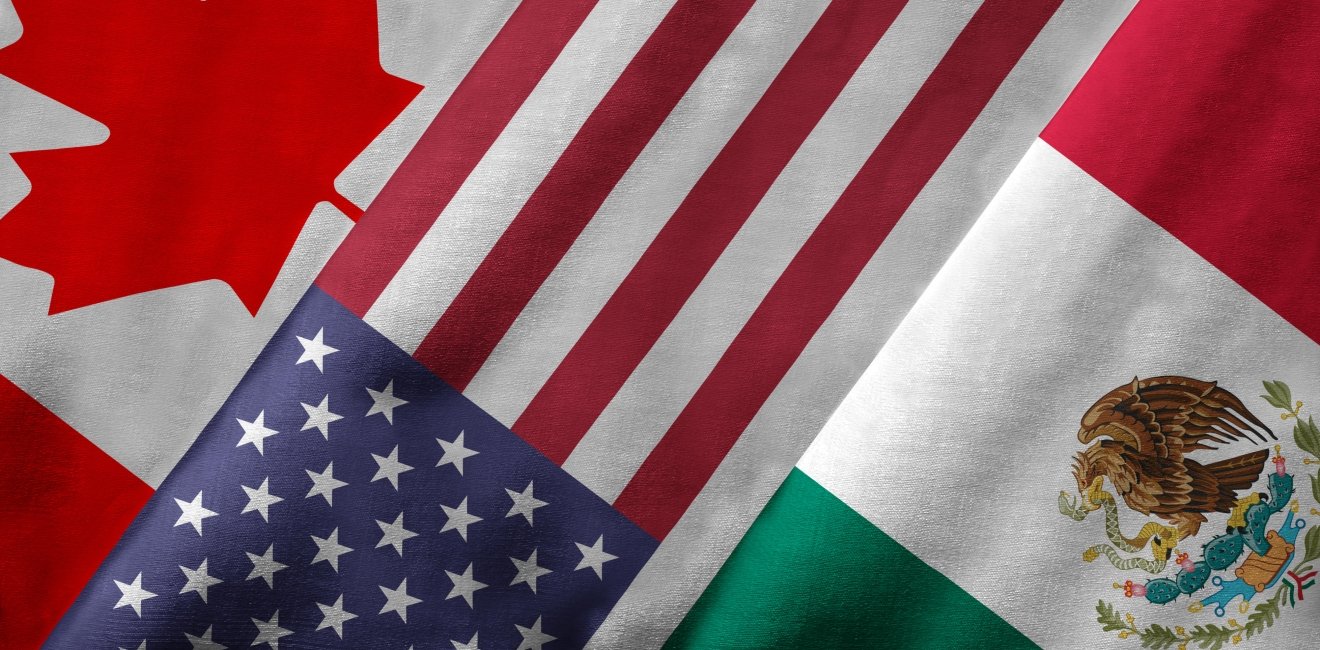The time is ripe for the Trump administration and the Democratic majority in the House of Representatives to forge an agreement for approval of the new North American trade agreement, called the U.S.-Mexico-Canada Agreement, or the USMCA.
The new NAFTA will give North America at least 16 years of modern, predictable rules and processes for strengthening the continent’s massive trade and co-production networks, including the many millions of jobs they support.
The U.S. International Trade Commission, for example, highlights how USMCA’s rules for digital trade will provide important new benefits for U.S. business sectors in an increasingly data- and internet-driven marketplace. USMCA’s framework will allow North America to power ahead in the global competition with China and other major trading centers and to focus on making production and workplaces more agile to better navigate the technological changes sweeping through the world’s economies.
U.S. political leaders from both parties would serve their constituents well by looking at the big picture and finding a “win-win” way to achieve the boost this agreement would give to U.S. producers, as well as to those of Canada and Mexico, the two largest U.S. production partners and export markets.
Mexico passed truly historic labor reforms in April, vastly expanding the rights of workers and unions. The reforms were promised as part of the USMCA, but Mexico, under President Andrés Manuel López Obrador, is an enthusiastic and long-time proponent of the changes.
Implementation of the reform includes creating new labor courts and conciliation bodies to resolve disputes and overseeing elections for workers across Mexico to choose union representatives. These are daunting tasks and will take several years to achieve. U.S. unions and politicians who have long called for such reforms and supported more labor democracy in Mexico should find ways to support Mexico’s reformist government to make these historic changes a reality, as part of implementing USMCA.
The U.S., Mexico and Canada also agreed in May to eliminate the U.S. “national security” tariffs on steel and aluminum from Canada and Mexico, as well as the retaliatory tariffs on U.S. goods that Mexico and Canada had imposed. U.S. farmers and consumers are big winners. The International Monetary Fund calculated that lifting these tariffs would be the biggest immediate positive outcome of the USMCA agreement, providing some $2.5 billion in welfare gains for the region.
What remains is to forge an agreement between the Trump administration and Congress that will allow approval of USMCA before the approaching U.S. presidential election effectively closes the window for a vote until 2021.
Democrats in the House of Representatives raise several concerns they would like addressed. These focus on the strength of commitments and enforcement provisions regarding labor and the environment (both of which appear centered on Mexico) and the length of protection of patents for biologic pharmaceuticals provided (which is about U.S. policy, not Mexico or Canada). Some worry about Mexico’s implementation of labor reforms and how the U.S. might respond to “enforce” USMCA’s commitments, if Mexico does not carry them out well.
Adjustments could be made to the agreement’s texts (difficult). Fixes could also be included in the U.S. implementing legislation (easier), and/or they could be embodied in a separate bilateral or trilateral agreement to accompany USMCA (not easy, but possible).
Some, including Speaker Nancy Pelosi (D-Calif.), have indicated that changes in the agreement’s language will be needed (which the U.S. administration, Canada and Mexico are resisting), while others seem open to alternative solutions.
One set of options would involve visits to observe implementation of labor commitments and a process for trying to resolve any problems found — and eventually for withdrawing some benefits if there is not a satisfactory resolution. Two U.S. senators have floated one idea in this direction. Mexico does not want further changes in the agreement text and, if pressed for some mechanism, would undoubtedly seek reciprocal rights and commitments. Mexico could point to previous examples of abuse of its workers temporarily in the U.S. in asserting its potential need to protect labor rights.
The U.S. administration has not been open to reciprocal commitments and talks about using unilateral trade action for enforcement. Critics point out that a unilateral measure would invite retaliation and would not provide a predictable, evidence-based process for resolution.
An alternative path to addressing concerns about enforcement could be to introduce language in the implementing legislation establishing a trilateral agreement to ensure that the dispute settlement resolution portions of USMCA work in a timely and effective manner, if an enforcement issue related to labor or other topics arises. Two respected Mexican experts and former officials floated such a proposal recently.
The administration, led by U.S. Trade Representative Robert Lighthizer, is exploring Democrats’ concerns and potential mutually acceptable solutions.
However, Democrats could decide to delay action on the agreement, even though President Trump has threatened to pull out of NAFTA if Democrats do not act. Behind Democratic concerns are worries that they could be handing the president a "victory" that he would use to fuel his reelection campaign.
This makes it vital that any agreements between the administration and Congress be seen as a "win" for Democrats as well as the Trump administration. Both Mexico and Canada would also need to be consulted on potential changes.
Trade and investment among the three countries support over 12 million U.S. jobs, many of which are located where Democrats hold political power. The Peterson Institute examined U.S. congressional districts with the highest share of exports of goods and services to Mexico and Canada and found 21 of those districts have Democratic members of Congress. The affiliated jobs provide those representatives with good reasons to support rapid approval of USMCA.
Popular support for trade in North America has grown: the Chicago Council on Global Affairs found that in early 2019 70 percent of Americans said that USMCA would be good for the economy, including majorities from both parties.
Creative, constructive thinking can provide for the greater good of all three countries. Getting it right won’t be easy. Focused engagement to find a workable solution is needed now.
This article was originally published on The Hill...






